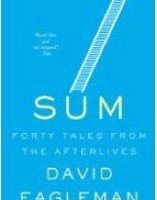Tag Archives: audio
Woman falls out of chair while on the air
RepublicTigerSports.com
 During the early days of what we then called the “World Wide Web,” there was a mood of “digital entrepreneurism.” Anybody with a minimum of technical skills could create a website. Later, when blogs became a thing, it got even easier. You could start your own newspaper or magazine or — when the bandwidth got better and the tools easier — audio and video. Anyone could create their own “content” and do so for fun or profit. That was the dream and a few made it a reality.
During the early days of what we then called the “World Wide Web,” there was a mood of “digital entrepreneurism.” Anybody with a minimum of technical skills could create a website. Later, when blogs became a thing, it got even easier. You could start your own newspaper or magazine or — when the bandwidth got better and the tools easier — audio and video. Anyone could create their own “content” and do so for fun or profit. That was the dream and a few made it a reality.
One of those was my friend David Brazeal. David grew up in Republic, Missouri, a small town just outside of Springfield in the southwest corner of the state. He earned a degree in journalism from the University of Missouri and then reported news at a radio station in Jefferson City, MO.
That’s where I met him and then worked with him at Learfield Communications. David started in the newsroom but migrated to some of Learfield’s early, digital businesses. He was very good at what he did but eventually grew restless and longed to strike out on his own. His idea was to create a website that covered high school sports in his hometown.
With his wife’s blessing, he quit his very good job at a very good company and started RepublicTigerSports.com in 2009. David has defied the odds and made his “micro-site” a critical and financial success. I think it’s safe to say he covers high schools sports in Republic better than any traditional media outlook could or would. The town does not have a radio or TV station but does have a weekly newspaper.
I don’t think I could begin to describe the breadth and depth of the content on his site. If you are even remotely interested in what he’s doing, spend 10 or 15 minutes on the website. If you’re still interested, you might enjoy listening to the interview below. Runs about 35 minutes.
Missouri Death Row Audio
In the late ’90s I created a website called MissouriDeathRow.com. A Missourinet reporter had served as a witness (while covering) of every execution going back to 1989. There was no death row website because a) the web was still pretty new at the time and b) the Missouri Department of Corrections went to some lengths to avoid the term “death row,” even though prisoners sentenced to — and awaiting — execution were housed together.
At each execution, a packet of information was handed out to reporters and a stack of those were gathering dust in the Missourinet newsroom. News Director Bob Priddy and I began putting that information online and it quickly became the de facto site for information about capital punishment in Missouri. I maintained the site until I retired in 2012.
The site included a page with some of the history of capital punishment, including audio recorded by Missourinet reporters. As of this writing, much of that audio is no longer available on the site. The site was moved a few times, different servers, different platforms… files get misplaced or lost. My buddy Phil Atkinson did his best to find some of those and I’ve archived them here.
Missouri hasn’t executed anyone in a couple of years but they had quite run at one point. The audio includes post-execution news conferences, interviews with victims’ families, opponents and proponents, and the condemned.
Learfield affiliate conference call
In 1984 I went to work for Learfield Communications. At that time the company operated state and regional radio networks and had recently switched from delivering that audio programming by satellite (from land lines). Among other responsibilities, I did affiliate relations which meant keeping our affiliate radio stations happy. One of the big technical challenges in those early days was the quality of our satellite audio feeds. Really bad with some of our networks. In an effort to address these concerns I set up a closed circuit conference call — sometime in the late ‘80s — during which engineers from our affiliate stations could call in and ask questions of our technical staff. Kent Malinowski was head of our satellite division (Mark Lucas and Cathy Zeiler worked with him); and Charlie Peters, Learfield’s chief engineer)
I’m archiving the audio of this call here for posterity. No idea who might ever listen to this bit of Learfield history (or why).
Part 1-30 min
Part 2-23 min
Part 1 (30 min) – Part 2 (30 min) [It might be necessary to download these mp3 files before listening]
Fortunate Son
I recently heard a bluesy/jazzy version of CCR’s Fortunate Son. The uke chords seemed to be within my limited range so I’ve been amusing myself (and our two dogs). This afternoon I took a break to fiddle around with Garageband. This sounds nothing like the cover that got me started. Submitted here for your amusement.
Old radio commercials on KBOA
I’ve shared most of this audio here previously now have most of it on YouTube and the player makes it a little easier listen. There’s a small icon at the top-right of the player below that brings up all 14 clips in the playlist. It’s right next to the “settings” gear icon, after you start playing.
Old radio commercials (KBOA)
A YouTube playlist featuring oral history of KBOA, Kennett, MO. All of these are available as MP3 files at www.KBOA830.com.
Social media immortality
Sum: Forty Tales from the Afterlives
 I’m reading a wonderful little book by David Eagleman called Sum: Forty Tales from the Afterlives. But it’s really “an examination of what it means to live.” At first I marveled at the strangeness of some of the stories but realized none are stranger than the stories most of us grew up with (Bearded white man sitting on golden throne surrounded by harp playing angels). This is a book I’ll keep close and read again and again.
I’m reading a wonderful little book by David Eagleman called Sum: Forty Tales from the Afterlives. But it’s really “an examination of what it means to live.” At first I marveled at the strangeness of some of the stories but realized none are stranger than the stories most of us grew up with (Bearded white man sitting on golden throne surrounded by harp playing angels). This is a book I’ll keep close and read again and again.
UPDATE (6/18/11): I’m trying to savor these stories and make them last but I’m getting near the end and everyone is better than the one before. One of my favorites so far is Death Switch:
“So an afterlife does not exist for us per se, but instead an afterlife occurs for that which exists between us. When and alien civilization eventually bumps into Earth, they will immediately be able to understand what humans were about, because what will remain is the network of relationships: who loved whom, who competed, who cheated,who laughed together over road trips and holiday dinners. Each person’s ties to bosses, brothers ad lovers are etched into the electronic communiques. The death switches simulate the society so completely that the entire social network is reconstructable. The planet’s memories survive in zeros and ones.”
Author and broadcaster Stephen Fry reads from Sum: Forty Tales from the Afterlife, neuroscientist David Eagleman’s first work of fiction.

